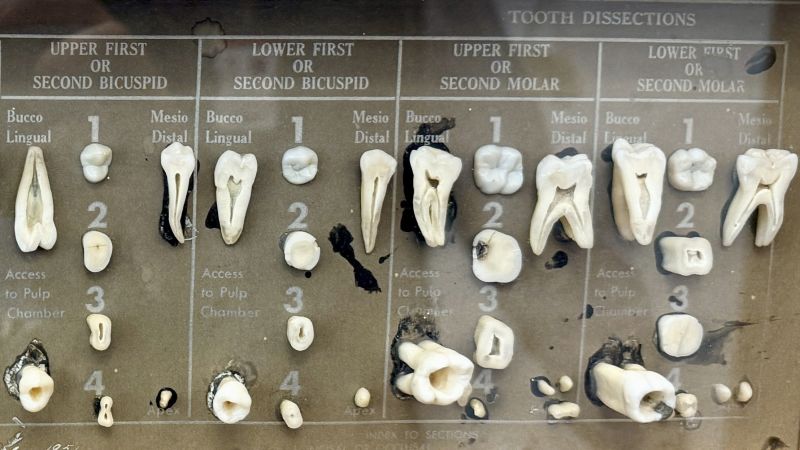Utah's Fluoride Ban: A Public Health Gamble?
2025-05-07

CNN
Utah has become the first US state to ban community water fluoridation, a move hailed by some as a victory for personal freedom but condemned by health experts. This new law, effective immediately, throws into question the future of dental health for millions of Utah residents. We explore the science, the controversy, and the potential health consequences of this unprecedented decision.
A Century of Public Health Success?
For decades, fluoridation of public water supplies has been a cornerstone of public health initiatives, widely credited with significantly reducing tooth decay, particularly in children. The Centers for Disease Control and Prevention (CDC) even declared community water fluoridation one of the “greatest public health achievements of the 20th century.” The practice involves adding small amounts of fluoride – a naturally occurring mineral – to drinking water to strengthen tooth enamel and prevent cavities. Numerous studies have consistently demonstrated its effectiveness and safety.
The Controversy in Utah
However, a vocal opposition movement has been building in Utah, fueled by concerns about individual liberty, potential health risks (often unsubstantiated by scientific evidence), and government overreach. Advocates of the ban argue that individuals should have the right to choose whether or not they consume fluoride. The new law, signed into effect, effectively prohibits public water systems from adding fluoride, leaving the decision entirely up to local municipalities.
Health Experts Weigh In
The ban is drawing sharp criticism from dentists, public health officials, and medical professionals. They warn that it will disproportionately impact low-income families and vulnerable populations who rely on fluoridated water for dental health. "This is a setback for public health, particularly for children who don't have access to regular dental care," says Dr. Sarah Miller, a leading dentist in Salt Lake City. "Fluoride is a safe and effective way to prevent cavities, and removing it from the water supply will inevitably lead to increased rates of tooth decay."
The American Dental Association (ADA) has also strongly condemned the ban, stating that it is "based on misinformation and fear-mongering." They emphasize that decades of research have consistently demonstrated the safety and efficacy of community water fluoridation. The ADA is urging Utah lawmakers to reconsider their decision and prioritize the oral health of their constituents.
Potential Health Risks and Consequences
While proponents of the ban often cite unsubstantiated claims of health risks, the vast majority of scientific evidence supports the safety of fluoridation at recommended levels. However, health officials acknowledge that excessive fluoride intake can lead to dental fluorosis, a cosmetic condition that causes discoloration of the teeth. This is typically a concern with very young children who swallow large amounts of toothpaste.
The immediate consequence of the ban will be a significant reduction in access to fluoride for millions of Utah residents. This is likely to result in increased rates of tooth decay, higher dental healthcare costs, and greater disparities in oral health outcomes. Some communities may explore alternative fluoride delivery methods, such as fluoride varnish applications or dietary supplements, but these options are often more expensive and less accessible.
Looking Ahead
Utah’s decision to ban fluoride is a landmark event with far-reaching implications. It sets a potentially dangerous precedent for other states considering similar measures and raises fundamental questions about the role of government in protecting public health. The long-term consequences of this ban remain to be seen, but experts warn that it will likely have a detrimental impact on the oral health of Utah residents for years to come. The debate surrounding fluoride is far from over, and the focus now shifts to mitigating the potential harm caused by this controversial new law.





